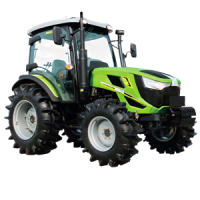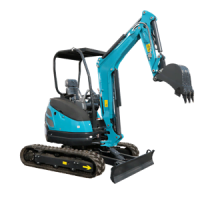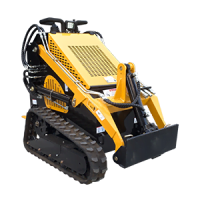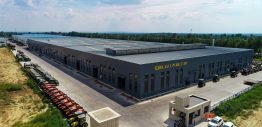In the ever-evolving landscape of agriculture, farm tractors stand as essential workhorses, driving productivity and efficiency in crop cultivation and food production. However, as the world grapples with environmental challenges and the need for sustainable farming practices intensifies, the spotlight is on farm tractors to reduce their environmental footprint and enhance fuel efficiency. In this comprehensive 8000-word guide, we delve deep into the pivotal role that fuel efficiency plays in modern farm tractors and how their environmental impact can be mitigated. From their history to cutting-edge technologies, we scrutinize the complexity and burstiness of the intersection between tractors, fuel, and the environment.
Introduction
The Agricultural Dilemma
As global populations burgeon, agriculture faces the challenge of producing more food while minimizing its environmental impact. We kick off our exploration by addressing this critical issue.
The Tractor’s Evolution
Tractors have come a long way from their humble beginnings. We’ll trace their journey and the technological advancements that have made them indispensable in modern agriculture.
The Fuel Efficiency Imperative
Fuel Efficiency: A Game-Changer
Explore why fuel efficiency is paramount for farm tractors, not just in terms of cost savings but also as a key driver of sustainability.
The Mechanics of Fuel Efficiency
Delve into the mechanics behind fuel efficiency in tractors, including engine design, transmission systems, and aerodynamics.
Technologies Powering Fuel Efficiency
Precision Agriculture and Fuel Efficiency
Learn how precision agriculture techniques, enabled by advanced tractors, optimize fuel consumption by ensuring precise planting, fertilizing, and harvesting.
Hybrid Tractors: The Green Revolution
Discover how hybrid tractor technology is reducing fuel consumption and emissions while improving overall performance.
Electric Tractors: A Sustainable Future
Explore the emergence of electric tractors and their potential to revolutionize farming by offering zero-emission, sustainable alternatives.
Sustainable Fuel Solutions
Discuss alternative fuels, such as biodiesel and hydrogen, and their role in reducing the environmental impact of tractors.
Environmental Impact Mitigation
Emissions Control
Examine how tractors are incorporating emissions control technologies to reduce their carbon footprint.
Reducing Soil Compaction
Learn how modern tractors are designed to minimize soil compaction, preserving soil health and fertility.
Precision Farming and Conservation
Explore how precision farming techniques, driven by tractors, facilitate conservation practices like no-till farming and cover cropping.
Biodiversity Promotion
Discover how tractors can promote biodiversity through sustainable land management practices.
Economic Benefits of Fuel Efficiency
Cost Savings
Discuss how fuel-efficient tractors translate into long-term cost savings for farmers, contributing to their economic sustainability.
Government Incentives
Explore government programs and incentives that encourage the adoption of fuel-efficient and eco-friendly tractors.
The Road Ahead
Innovations in Fuel Efficiency
Look into the exciting innovations expected in tractor fuel efficiency, from AI-driven systems to advanced materials.
The Future of Sustainable Farming
Discuss how tractors, as pioneers of sustainability in agriculture, are shaping the future of farming practices.
FAQs
Q1: How do fuel-efficient tractors benefit the environment?
Fuel-efficient tractors emit fewer greenhouse gases and pollutants, reducing their environmental impact. This helps mitigate climate change and air pollution.
Q2: Are electric tractors practical for large-scale farming?
Electric tractors are gaining traction, especially for smaller farms. However, challenges like battery range and infrastructure need to be addressed for wider adoption in large-scale farming.
Q3: Can farmers retrofit older tractors for better fuel efficiency?
Yes, retrofitting older tractors with fuel-efficient technologies is possible and can be a cost-effective way for farmers to improve their environmental footprint.
Q4: Do fuel-efficient tractors compromise on power and performance?
Modern fuel-efficient tractors are designed to deliver power and performance comparable to traditional counterparts, ensuring that productivity is not compromised.
Q5: What is the role of tractors in preserving soil health?
Tractors play a crucial role in preserving soil health by minimizing soil compaction, which can lead to improved crop yields and reduced erosion.
Conclusion
Farm tractors have transcended their traditional roles as mere agricultural machines; they are now agents of change in the quest for sustainable farming. Fuel efficiency and environmental impact reduction are at the forefront of this transformation. As we move forward, the synergy between tractors, fuel efficiency, and environmental responsibility will continue to shape the landscape of agriculture, ensuring a more sustainable and prosperous future for our planet and generations to come.







-1.png)